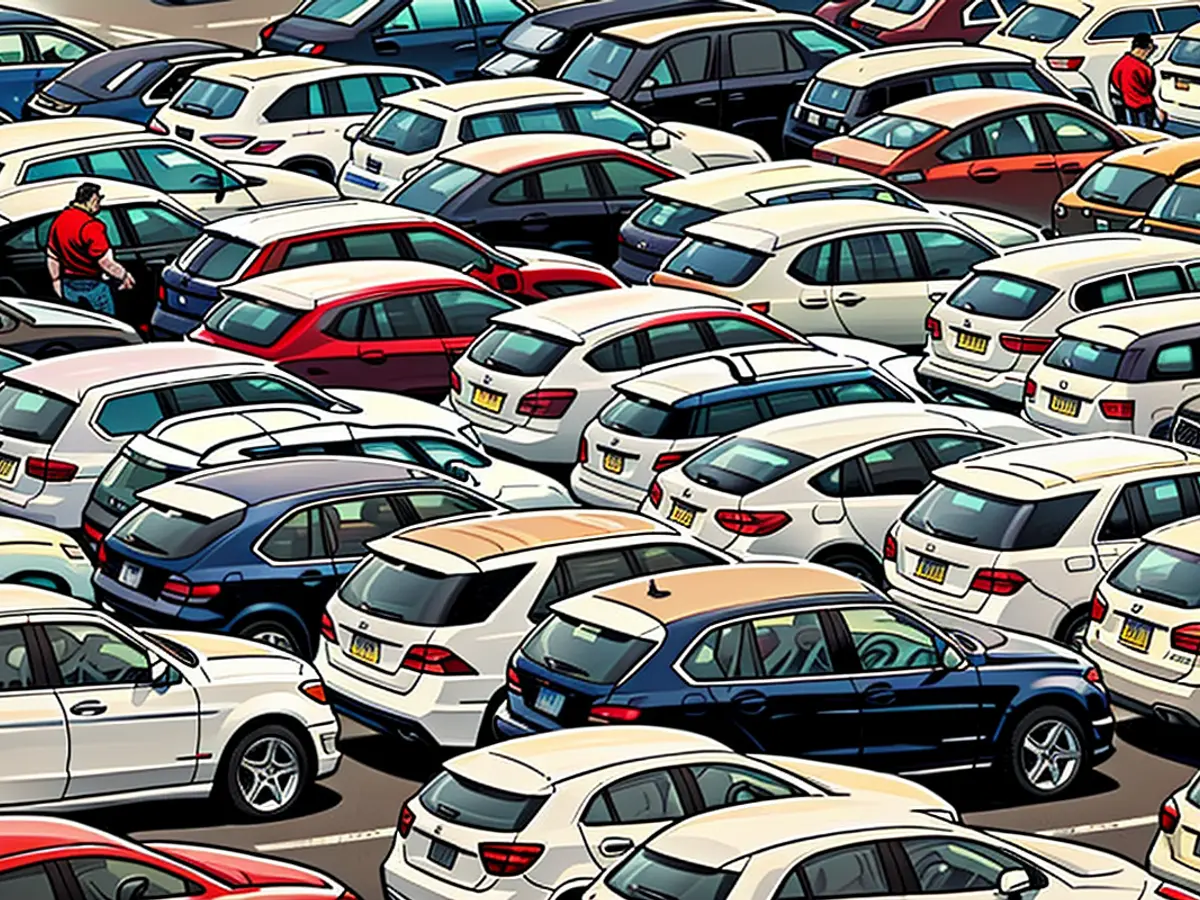BMW defies the market, Mercedes sales drop significantly
BMW outperforms the competition in the Premium-Segment: Unlike Mercedes-Benz and Audi, Munich-based manufacturers sold more cars in the first half of the year than in the previous year's period. This is also due to the electric cars. However, the business in China remains challenging.
The German automotive industry is doing well. All three major corporations have announced sales figures for the first half of the year - none of them is in the plus on a group level. BMW reported a decline of 0.1% to 1,21 million cars sold, and VW reported a 0.6% decrease to 4.35 million. Mercedes-Benz suffered a 6% loss to 1.17 million.
At Volkswagen, it's the core brand and Audi that are dragging down the numbers. The Ingolstadt daughter sold only 833,000 cars in the first half of the year, 8.2% less than in the comparison period 2023. The core brand VW, which accounts for more than half of the total group sales, managed to almost hold its sales in the first half of the year, with only a 0.2% decrease to 2.22 million cars sold. However, the downward spiral accelerated significantly in the months of April to June, with a minus of 5.2%. However, the daughters Skoda and Seat/Cupra were able to make up for it.
The business is particularly weak in China, where the VW Group sells about a third of all its cars. There, only about 1.35 million cars were sold in the first six months, 7.4% less than a year ago. There was also a setback in the sales of electric cars. The group delivered a total of 317,200 electric models worldwide in the first half of the year, 4,400 fewer than in the same period in 2023. The reason was the weak demand in Europe and the USA, where 15% fewer electric cars were delivered.
Audi was able to slightly increase its electric car sales from 75,600 to 76,700 vehicles. However, sales of the top model Q8 e-tron fell from 19,500 to 17,900. Due to the weak demand for the model, the VW subsidiary is now considering prematurely stopping production of the model in Brussels. This puts the entire site with around 3,000 employees in jeopardy.
Electric cars remain a growth driver for BMW
Nevertheless, the VW Group remained optimistic for the rest of the year. "We are calculating based on the launch of numerous important models in the second half of the year that we will continue to expect a slight increase in global deliveries compared to the previous year," said Hildegard Wortmann, sales chief of Audi, who is also responsible for the division in the overall group.
The daughters Mini and Rolls-Royce put pressure on BMW's figures. Their sales fell by 18.7% to 114,000 cars for Mini and by 11.4% to 2,819 for Rolls-Royce. At Mini, ongoing model changes were noticeable. However, the core brand BMW performed better with 1.1 million cars and a growth of 2.3%. The losses of the daughters were almost offset by BMW.
Among Munich residents, electromobility remained a growth driver, unlike their rivals in the premium segment, Audi and Mercedes. Group-level deliveries of pure electric vehicles at BMW increased by around a quarter to 190,600. However, the percentage growth rate had also significantly decreased: BMW had achieved an increase of around three quarters in total for pure electric vehicles by the end of the year 2023. BMW's Sales Board Member Jochen Goller assessed the development "in a challenging market environment" positively: "We have managed to grow by over 200% in fully electric vehicles and models from the upper premium segment in the first six months of the year."
Meanwhile, Mercedes recorded approximately 959,000 deliveries in the Mercedes-Benz Cars segment - a decline of 6%. The Vans segment reported a decrease of 4% to 209,000. Electromobility proved to be a brake for Stuttgart: The sales of electric vehicles fell by 16% at the group level to 101,600, and by 17% in the Cars segment to 93,400. The company reported that the ramp-up of electric vehicles was slowing down in key markets.
Model changes and supply bottlenecks influenced sales in the first half of the year, according to Mercedes. In the top product segment, which includes models such as the S-Class, sales fell by 22%. This could also be attributed to a subdued market environment in Asia. Sales in the important market China fell by 9%.
- Despite the challenges in China, German carmakers like BMW, Audi, Mercedes-Benz Group AG, and Volkswagen are focusing on the growth potential of electric cars in the car industry.
- BMW, along with other major German car manufacturers, has reported sales figures for the first half of the year, but none of them have managed to post a group-level increase, with BMW and Volkswagen experiencing slight decreases.
- Audi, a subsidiary of Volkswagen, reported a slight increase in electric car sales to 76,700 vehicles, but the top model Q8 e-tron saw a decrease in sales, leading to considerations of prematurely stopping production.
- In contrast to Audi and Mercedes-Benz, Munich-based BMW saw growth in electric car sales, with a 25% increase in group-level deliveries of pure electric vehicles, making electromobility a significant growth driver for the car manufacturer.








